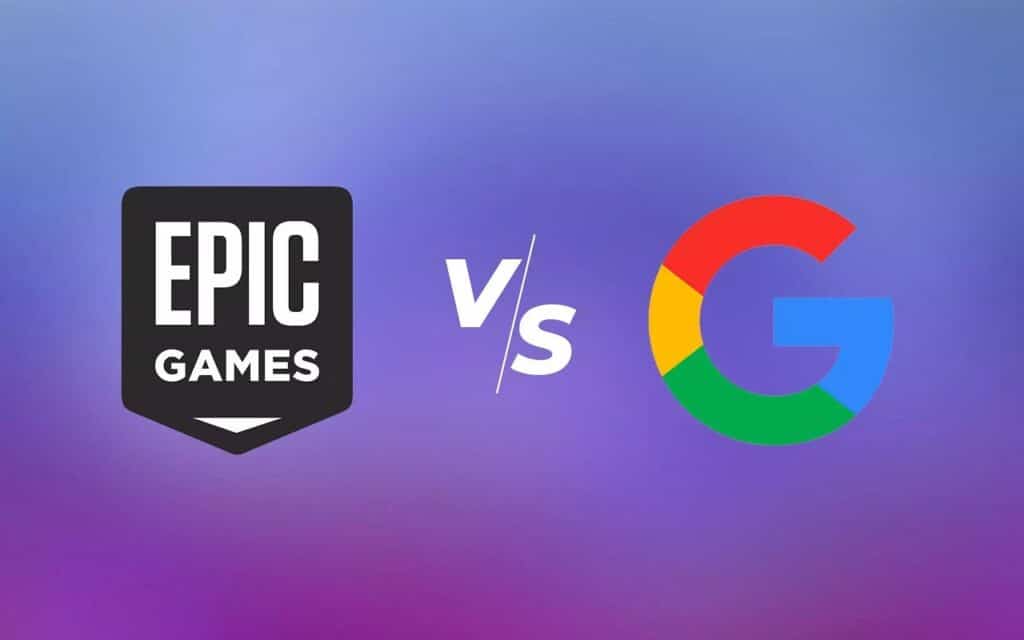Epic Gamesthe company behind the popular game Fortnite, has achieved a court victory against Google. Three years after the legal action began, the jury returned a verdict that found how Google created a illegal monopoly through his app store Google Play and the billing service Google Play. But the Mountain View company has already told the American press that it will appeal.
Epic wins in court: Google would have a monopoly on its app store
For a long time now Epic Games has filed a lawsuit with Apple and Google. The point is the same: according to the Fortnite software house, the two companies exercise a monopoly on the application stores for iOS and Android, making it too complex to use alternative payment methods. According to Epic, they do this not for security reasons but to obtain commissions of up to 30% of transactions.
Recently, both Epic and Apple had asked the Supreme Court to reopen the case, which was formally concluded. Apple to not open iOS to third-party app stores, Epic to dissolve Apple’s acquittal and be refunded. And perhaps now the video game company could use the favorable ruling in the case against Google to convince the American High Court.
A unanimous verdict
The verdict, reached unanimously after only a few hours of deliberation, has clearly established that Google owns a monopoly power in the Android app distribution and in-app billing services markets. The jury, as The Verge reports, also recognized that Google would adopt anti-competitive measures in those markets and that Google’s actions would cause harm to Epic Games.

According to what was revealed by Google’s vice president for public affairs and policy, Wilson Whitethe company intends appeal against the verdict. He argued that Google competes “fiercely” with other app stores, including Apple’s, as well as app stores found on Android devices and game consoles.
An important victory for Epic
On the other hand, Epic Games celebrated the decision as a “victory for all app developers and consumers,” not just itself. He underlined how the verdict demonstrates “theillegality of the practices of Google’s app stores”, accused of taking advantage of their monopoly through “exorbitant” commissions that “harm competition and slow down innovation”.
This victory takes on a particular meaning because Epic had previously suffered a defeat against Apple in a similar battle. Although the court required Apple to open iOS to other digital app stores, it effectively failed to recognize the harm suffered by Epic.

Instead, the Epic v Google case led to different conclusions. According to commentators in the United States, the difference was made by the emergence of secret agreements of revenue sharing between Google, smartphone makers and some major game developers.
In the case Epic v Google on its app store monopoly, the jury made the difference
Several commentators have pointed out a substantial difference compared to the Apple case: the verdict was given by a jury. Many think this may have led to a different outcome than a single judge’s decision.
To the judge James Donato however, we will have to decide appropriate remedies, although Epic did not seek monetary damages. Rather, he wants the court to declare that every app developer has the right to introduce their own app stores and billing systems on Android. Something that will not concern smaller developers. But Epic could receive payments directly from players, saving astronomical sums without Google’s commission: Epic CEO Tim Sweeney spoke of hundreds of millions or billions of dollarspotentially
Despite this, Judge Donato has already indicated that not wanting to decide on percentage of commissions that Google should charge for its services. Additionally, he rejected Epic’s request for an anti-circumvention measure, suggesting that if Google presents further issues, further legal action may be taken.
The judge’s decision will play an important role in understanding the future of Google Play, at least in the United States. In Europe, the Digital Market Act and the decisions of the antitrust regulators are already changing the structure of application stores. In any case, it seems that Silicon Valley companies will have to make several changes in the near future. At the moment it is difficult to predict what this will mean for users: we will keep you informed.















Leave a Reply
View Comments